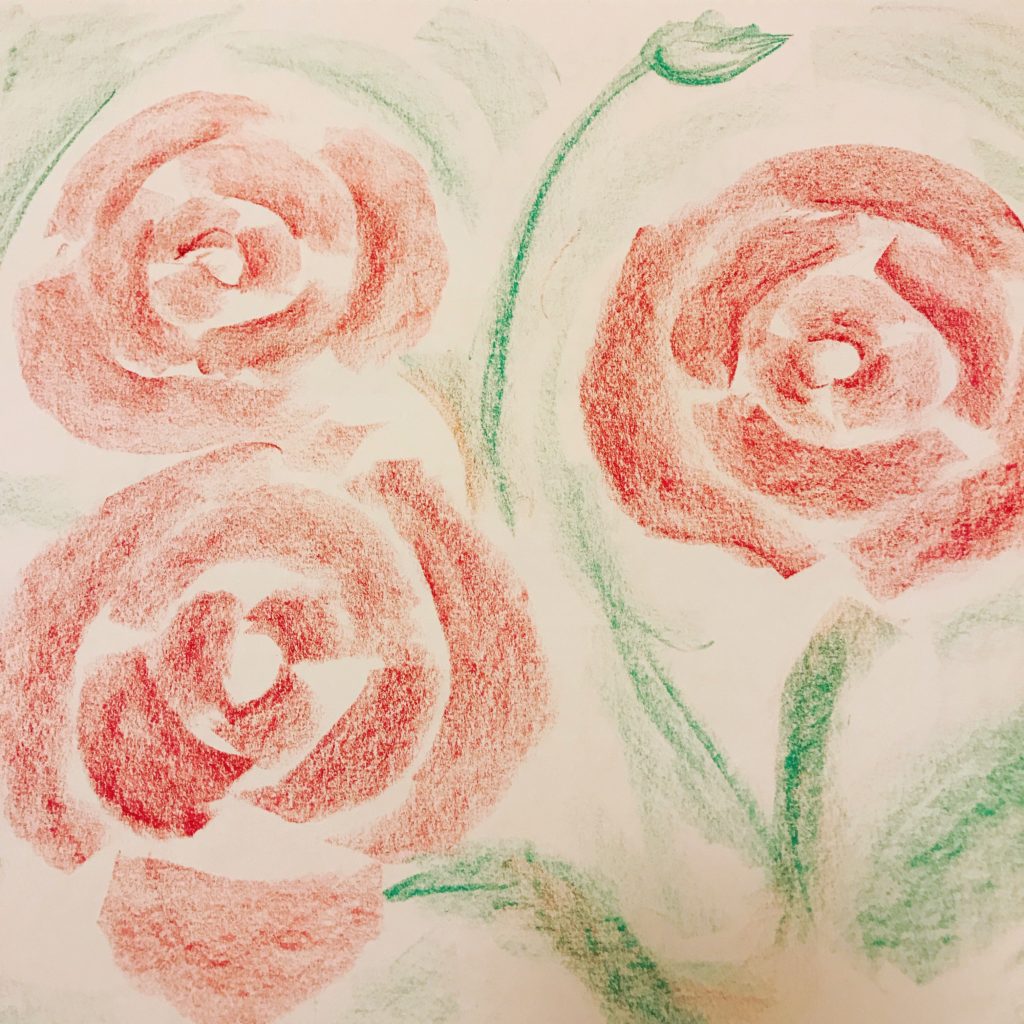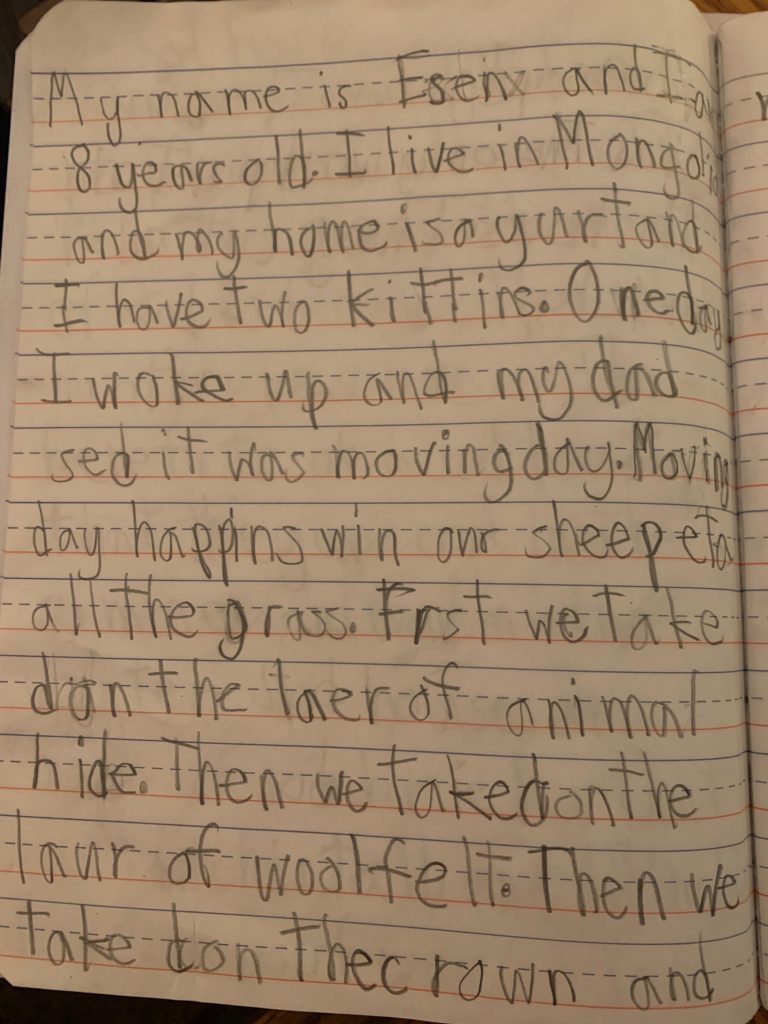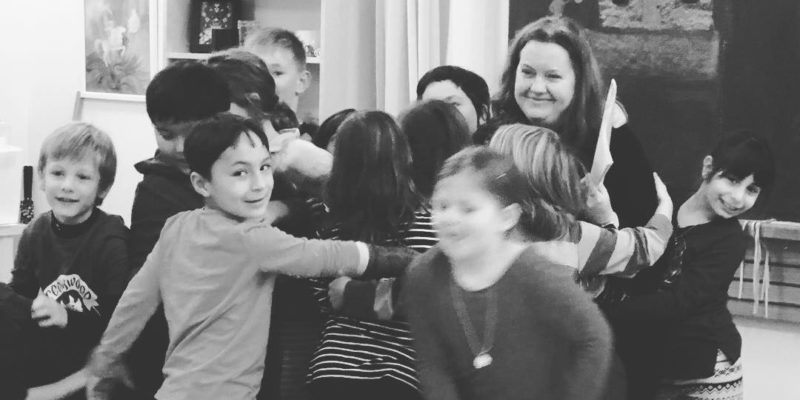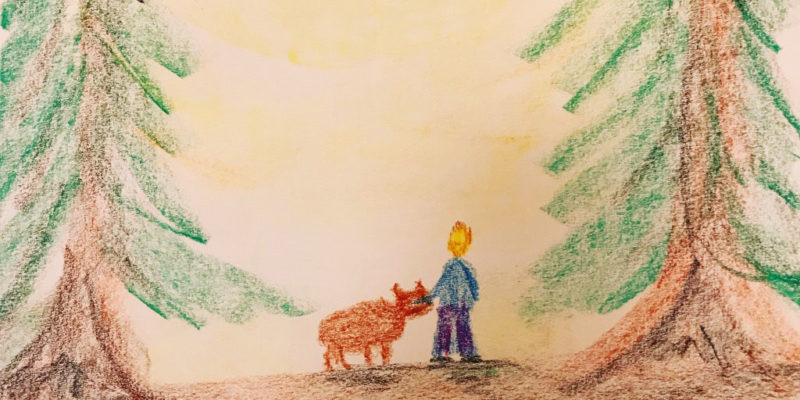I sat down to write this week and realized that I’m having so many thoughts about the work that I’m doing with the 3rd graders, I can’t help but make this post a bit of a catch-all. Here are some of my most recent random thoughts.
Hard-Working Waldorf Teachers
First of all, I have to thank all of you for your gestures of support in response to my last post. I love the work that we do and I want the rest of the world to recognize the amazing things that Waldorf teachers around the world are doing.
You all gave me some hope that recognition is coming and that our work is appreciated. I hope you’ll all keep fighting the good fight and advocate for the respect (and compensation) you deserve. I’m so grateful for the support of my colleagues and class parents and it’s nice to know there is such a strong community of teachers following along here, as well.

What block are we in? Writing or math?
During this last week before the American Thanksgiving holiday, we’re back in our Hebrew legends. Multiplication and division review is the official content of the block, so we’re doing lots of math practice, but these stories are so great, I can’t help but work with them.
I’ve actually worked with the content of the block in a unique way this time, inspired by the stories we’re hearing. Though we’re mostly studying math, I think it’s important that we continue to write. And some of the stories are so great that it would be a shame to skip over writing up a retelling.
This year, I’ve been giving my students a composition assignment every week, usually on Tuesdays. (I wrote another blog post about our composition rhythm here.) This rhythm works really well for us for a couple of reasons.
- I have a support teacher dedicated to our class every Tuesday during main lesson.
- I have found that we need to do composition assignments early in the week so we have time to review them and put the final versions in our main lesson books.
- Tuesdays are generally good days for the 3rd graders. Mondays and Fridays can be rough, but Tuesday is pretty good. And doing the hard work of writing a composition helps make it go more smoothly.
So, to make the composition process go more smoothly, I make sure to tell a good, rich story on Monday. When my students have those strong images in their minds, they have no problem writing. There have been times that I have tried to force a writing assignment about a story that did not live very strongly for my students, usually because I was not prepared to tell it, and it never goes well.
I’ve also found that because my students are so squirrelly and restless on Mondays, it’s a perfect day for a good long story. They usually settle right in and listen, building images as I tell.

But during a math block?
Well, yes. This rhythm is working so well for us, it just feels right to let the math rest on Tuesdays and do a composition instead. It’s a solid part of our weekly rhythm that works really well. I’m sticking with it.
Over the summer, when I planned the year, I had intended to alternate language arts and math. When we were in a math block, our daily practice period would be dedicated to language arts, and vice versa. This seems like a good rhythm, and it also worked well, but I’m just loving our Tuesday composition days that I’m rethinking it.
So, here we are on a Tuesday, just finished writing a composition, and during our skills class we’ll do math. Tomorrow we’ll practice math during main lesson, put our compositions into our main lesson books for bookwork, and then do some phonics work during practice class.
I admit it is a little odd to switch back and forth, but a good rhythm is worth its weight in gold!
Hebrew Legends Resource
Have I mentioned the resource that I’m using for most of these stories? I am LOVING Pearl Buck’s Story Bible. It breaks down the stories from the Tanakh into just the right length for a good main lesson story. It also brings rich images and language. At the beginning of the year I was pulling from a few different resources, but these days I’m just going straight from The Story Bible.
Classroom Management
I don’t know about you, but for me classroom management is a constant work in progress. Just when I think I’ve got it all figured out, I see something different and feel inspired to try something new.
Lately my thoughts are about just how much management I’m doing. The thing is, ultimately, I want my students to manage themselves. I mean, I can certainly keep them in line and direct the will of the group, but how much of that should I be doing?
How much can I turn the management of the group over to the students themselves? And if I do it, will they be successful? I’ve got lots of tricks up my sleeve, but lately I’m thinking that I need to keep my sleeves down a bit and let them do the heavy lifting.
My goal is to have a classroom full of students that hold themselves (not each other!) accountable for doing the right thing. And maybe pumping the breaks on my management is the way to make that happen.
Just some food for thought. What do you think? Leave a note in the comments.
Free Classroom Management Workshop
Finally, I’m getting ready to run my free classroom management workshop again in January. If you missed it last time around, you should definitely sign up this time. I go through three of my favorite classroom management strategies and give you tips for implementing them in your classroom. And it’s completely free.
Just click here to get to the sign-up page and I’ll notify you when the workshop is live.




Hi Meredith. I reccently discovered your podcast and made it through them all very quickly, you are very much an inspiration and I’ve learnt so much about Steiner Education from you – thank you. After reading this blog I wanted to recommend my favoruite education book to you (and anyone else reading this), incase you haven’t heard of it, as it speaks to what you’ve mentioned about having the children in your class manage themselves more. It’s a phenomenal true story which had me sobbing at the end (with joy that it really happened and sadness that the story had finished). It’s called My country school diary by Julia Weber Gordon. She teaches her class to use a democratic approach with incredible insight and to great success, and the children become beautifully self-actualised under her teaching. I hope you love it if you manage to try it! Best wishes, Megan (Steiner Kindergarten Assistant, UK)